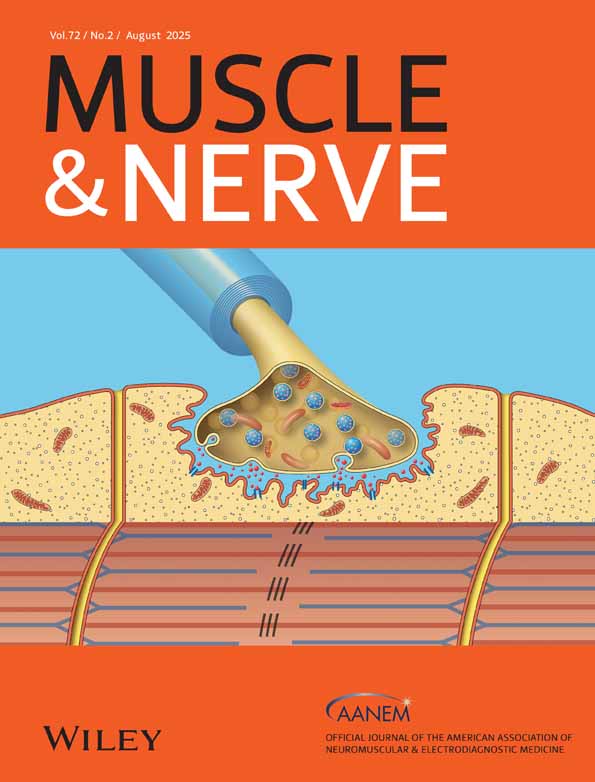TSH receptor protein is selectively expressed in normal human extraocular muscle
Abstract
Thyroid-associated ophthalmopathy is a common manifestation of Graves' disease. Its pathophysiology is not well understood but an antigen shared between the thyroid and orbit is thought to play a role. Using immunohistochemistry, we have demonstrated the presence of the autoantigenic target of Graves' disease, the thyroid-stimulating hormone receptor, in normal human extraocular muscle. These results support previous findings of the full length and splice variant thyroid-stimulating hormone receptor cDNA in extraocular muscle. The observation of the autoimmune target—the thyroid-stimulating hormone receptor protein—being shared between the thyroid and extraocular muscle lends greater support to the notion that an extraocular muscle thyroid-stimulating hormone receptor is also a likely target autoantigen in thyroid-associated ophthalmopathy. Muscle Nerve, 2005




